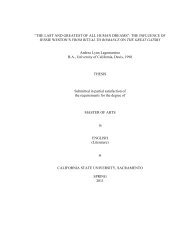Complete Thesis_double spaced abstract.pdf
Complete Thesis_double spaced abstract.pdf
Complete Thesis_double spaced abstract.pdf
You also want an ePaper? Increase the reach of your titles
YUMPU automatically turns print PDFs into web optimized ePapers that Google loves.
consolidated the military’s power and further dismantled the remaining democratic structures and<br />
mechanisms in Guatemala. Under Peralta’s presidency certain political parties were abolished,<br />
the Congress was disbanded, military courts were set up to try crimes against the government,<br />
and laws were passed that criminalize any communist propaganda, communist party membership,<br />
and any activities deemed as terrorist activities (REMHI, 1999, 195). Peralta formed the<br />
Democratic Institutional Party (PID), fashioned after the Institutional Revolutionary Party (PRI)<br />
in Mexico, in an attempt to widen his base of support. As promised, elections were held in 1966,<br />
when a civilian, Julio Cesar Méndez Montenegro, was elected to the presidency with 43.7% of<br />
eligible voters abstaining (Black, 1984, 21). President Méndez was the brother of a centrist<br />
civilian candidate to the presidency, Mario Méndez Montenegro, who was either killed or<br />
committed suicide immediately prior to the election (Schlesinger and Kinzer, 1982, 245). The<br />
military tried twice, unsuccessfully, to oust President Méndez from office; the first attempt<br />
occurred immediately after he won the election. However, international pressure, especially from<br />
the United States, forced the military to reevaluate its immediate goals; a bargain was struck<br />
between President Méndez and the military. President Méndez survived the coup and began his<br />
term “under a state of siege,” threats to his presidency were both external and internal. The<br />
external threats to the Guatemalan government include strikes, coups, kidnappings of government<br />
officials and assassinations. The internal threats come almost entirely from the military<br />
leadership who, after the unsuccessful coup, are using fear as a weapon to control President<br />
Méndez. Military control over the presidency allows for the military to carry out operations<br />
within the Guatemalan state without any civilian oversight (Handy, 1984, 160). The military was<br />
the most active in the eastern regions of Guatemala, the guerrilla movement suffered defeats,<br />
alliances between the FAR and PGT began to break down.<br />
76



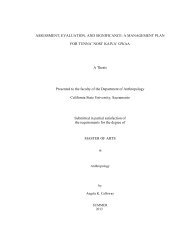
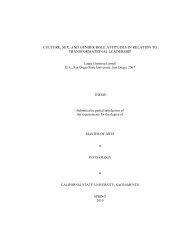
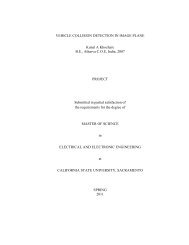
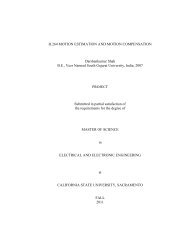
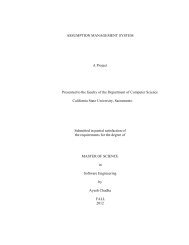
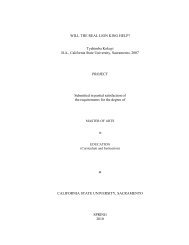
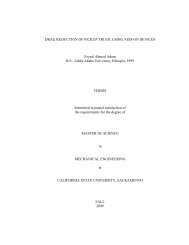
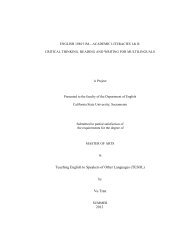
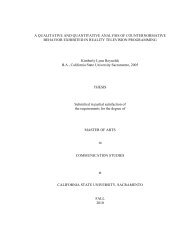
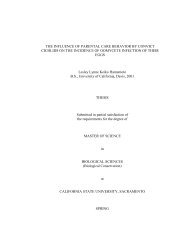
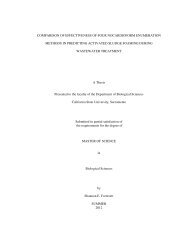
![Completed Thesis to Grad Studies[Final3].pdf](https://img.yumpu.com/17538645/1/190x245/completed-thesis-to-grad-studiesfinal3pdf.jpg?quality=85)
